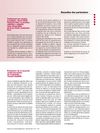 September 2005 in “Morecambe Bay medical journal”
September 2005 in “Morecambe Bay medical journal” Insulin resistance plays a key role in PCOS, and lifestyle changes, weight loss, and medications like metformin can help manage it.
September 2002 in “Fertility and sterility” Girls with PCOS often start puberty earlier and have signs of insulin resistance from a young age.
December 2022 in “PubMed” Altered hormones and insulin resistance are common in young men with early hair loss and linked to more severe cases.
 January 2021 in “Journal of Research in Medical and Dental Science”
January 2021 in “Journal of Research in Medical and Dental Science” Men with certain patterns of hair loss, especially the U pattern, are more likely to develop insulin resistance.

Androgenetic alopecia, or hair loss, is caused by genetic factors and hormones, with different mechanisms in men and women, and can be linked to insulin resistance and polycystic ovary syndrome.
 31 citations,
September 2006 in “International journal of gynaecology and obstetrics”
31 citations,
September 2006 in “International journal of gynaecology and obstetrics” New treatments for PCOS focus on insulin resistance and reducing testosterone levels, along with traditional hormone therapies.
 December 2010 in “Médecine des Maladies Métaboliques”
December 2010 in “Médecine des Maladies Métaboliques” The Accu-Chek FlexLink Plus and Accu-Chek LinkAssist Plus make insulin pump use safer, simpler, and more comfortable.
20 citations,
June 2020 in “Journal of Advanced Research” High-dose vitamin A and E with zinc improved blood sugar control and insulin function in diabetics, but may cause hair loss.
 11 citations,
November 2017 in “Electronic physician”
11 citations,
November 2017 in “Electronic physician” Depression severity is not linked to PCOS markers like BMI, insulin resistance, or testosterone levels.
 2 citations,
February 2023 in “BMC endocrine disorders”
2 citations,
February 2023 in “BMC endocrine disorders” Curcumin improved some metabolic factors in women with PCOS but did not affect cholesterol, insulin, or testosterone levels.
 140 citations,
December 2017 in “Journal of Controlled Release”
140 citations,
December 2017 in “Journal of Controlled Release” Microneedles improve drug delivery in various body parts, are safe and painless, and show promise in cosmetology, vaccination, insulin delivery, and other medical applications.
 16 citations,
January 2007 in “Journal of Obstetrics and Gynaecology”
16 citations,
January 2007 in “Journal of Obstetrics and Gynaecology” The document suggests various treatments for PCOS, including medication for menstrual issues, insulin resistance, and excess hair, as well as fertility treatments, while highlighting the need for personalized care and lifestyle changes.
 1 citations,
January 2017 in “Current Dermatology Reports”
1 citations,
January 2017 in “Current Dermatology Reports” Early baldness in men may indicate risks for obesity, metabolic syndrome, insulin resistance, and heart disease, similar to women with PCOS. Alopecia areata is often linked with autoimmune diseases and mental health issues. Certain hair disorders are due to genetic issues, and chemotherapy can cause hair loss through specific biological pathways. Iron deficiency's link to hair loss is still disputed.
 4809 citations,
January 2004 in “Fertility and Sterility”
4809 citations,
January 2004 in “Fertility and Sterility” The 2003 consensus updated PCOS diagnosis criteria and highlighted increased risks of diabetes and heart disease for those affected.
 4025 citations,
December 2003 in “Human Reproduction”
4025 citations,
December 2003 in “Human Reproduction” The 2003 consensus updated PCOS diagnosis criteria and linked PCOS to higher risks of diabetes and heart problems, recommending lifestyle changes to lower these risks.
 1540 citations,
October 2008 in “Fertility and Sterility”
1540 citations,
October 2008 in “Fertility and Sterility” The report concludes that PCOS is mainly a condition of excess male hormones and its definition may change as new information is discovered.
 991 citations,
January 2011 in “Nature Reviews Endocrinology”
991 citations,
January 2011 in “Nature Reviews Endocrinology” The document concludes that PCOS is a complex disorder caused by both genetic and environmental factors, affecting women's health in various ways, and requires personalized treatment.
 989 citations,
August 2007 in “The Lancet”
989 citations,
August 2007 in “The Lancet” PCOS is a complex condition with major health impacts, needing more research for better diagnosis and treatment.
 926 citations,
June 2010 in “BMC Medicine”
926 citations,
June 2010 in “BMC Medicine” Polycystic ovary syndrome is a complex condition that affects women's mental, reproductive, and metabolic health throughout their lives.
 883 citations,
August 2016 in “Nature Reviews Disease Primers”
883 citations,
August 2016 in “Nature Reviews Disease Primers” Polycystic Ovary Syndrome (PCOS) is a common condition in women that can cause metabolic, reproductive, and psychological issues, and requires lifestyle changes and medication for management.
 815 citations,
April 2010 in “The Journal of Clinical Endocrinology & Metabolism”
815 citations,
April 2010 in “The Journal of Clinical Endocrinology & Metabolism” Women with PCOS should be screened for heart disease risk and manage their health to prevent it.
 467 citations,
October 2014 in “European Journal of Endocrinology”
467 citations,
October 2014 in “European Journal of Endocrinology” The European Society of Endocrinology advises individualized long-term management for PCOS, focusing on lifestyle changes, accurate diagnosis, and treatments for associated health risks and symptoms.
466 citations,
June 2009 in “Experimental dermatology” We now understand more about what causes acne and this could lead to better, more personalized treatments.
 430 citations,
July 2002 in “Journal of Endocrinology”
430 citations,
July 2002 in “Journal of Endocrinology” The hypothesis suggests that PCOS may start early in life due to genetic and environmental factors, influencing future reproductive and metabolic problems.
 405 citations,
May 2007 in “Journal of The American Academy of Dermatology”
405 citations,
May 2007 in “Journal of The American Academy of Dermatology” Obesity affects skin health, causing conditions like acanthosis nigricans and may require different treatment approaches.
 373 citations,
September 2009 in “Obstetrics & Gynecology”
373 citations,
September 2009 in “Obstetrics & Gynecology” The bulletin provides guidelines for diagnosing and managing PCOS, suggesting weight loss, hormonal contraceptives, and diabetes screening, with clomiphene for infertility and various treatments for excess hair.
317 citations,
April 2018 in “Journal of steroid biochemistry and molecular biology/The Journal of steroid biochemistry and molecular biology” PCOS is a complex condition in women that can lead to health issues, and lifestyle changes are the best management approach.
 308 citations,
December 2018 in “PLOS Genetics”
308 citations,
December 2018 in “PLOS Genetics” The research found that PCOS has common genetic factors regardless of how it is diagnosed and is linked to metabolic and reproductive issues.
306 citations,
August 2011 in “Journal of cachexia, sarcopenia and muscle” Enobosarm significantly increased muscle mass and improved physical function in elderly men and postmenopausal women without serious side effects.
 286 citations,
January 2009 in “Human Reproduction Update”
286 citations,
January 2009 in “Human Reproduction Update” Women with the NIH type of PCOS have more obesity and higher risk of diabetes and heart disease than those with other types of PCOS.
























